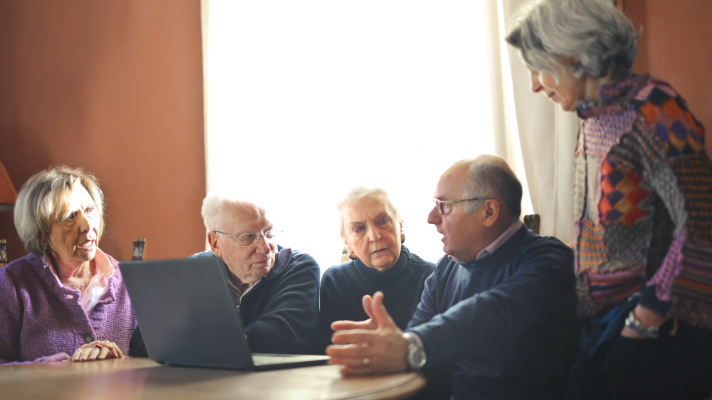By Helen Hirsh Spence
Estimated read, 2:00 min
We hope you’ve noticed the many posts during the first week of October about ageism awareness. Top Sixty has published several, along with an invitation to participate in our Ageism Awareness Day event online that took place on October 7.
With the demographics changing rapidly, the conversation about ageism is gaining traction across the world. Australia’s Benevolent Society’s Every Age Counts has produced wonderful materials, videos, and events on the occasion of this day. Changing the Narrative in Colorado and the American Society of Aging have also produced marvellous resources.
Ageism is prevalent in so many aspects of our lives. There are many ways in which every one of us can participate personally and in our professional lives. Below are just a few examples of the many ways that every one of us can contribute.
1, Be mindful of the language you use. Here are a few examples:
- Refrain from using commonplace expressions such as, “she looks good for her age”. What does an age look like?
- Is that hairdo age appropriate?
- You can’t teach an old dog new tricks.
2. Avoid using language that adds to divisiveness among generations. Examples are:
- Can’t wait until those Boomers retire and give us a chance to climb the corporate ladder.
- All millennials are entitled and lazy.
- I can’t work under him. He’s 25 years younger than me.
3. Don’t make assumptions about older adults:
- Don’t raise your voice assuming they are deaf.
- Refrain from assuming that they are not tech-savvy. Most are.
- Treat older adults deferentially and with respect. They may do some things more slowly but this doesn’t mean they are disabled or have memory issues.
4. When attending to an older person in a caring capacity:
- Speak to the person as you would someone much younger. Don’t infantilize or patronize with language such as “is your tummy making sounds?” Instead, ask if they are hungry.
- Allow the older person to speak up for themselves in institutional settings such as hospitals or clinics. Do not interject your wishes.
- Remind doctors and nurses to direct their questions directly to the older patient unless they are incapable of answering for themselves.
5. Consider:
- Deliberately engaging with a person who is considerably older or younger than you.
6. Ask yourself:
- What platforms do you use for social media? Where might you post anti-ageist messages?
The more people of all ages who participate, the greater the awareness about the negative impacts on individuals, communities, and the economy. We all have a role to play in countering ageism.


0 Comments